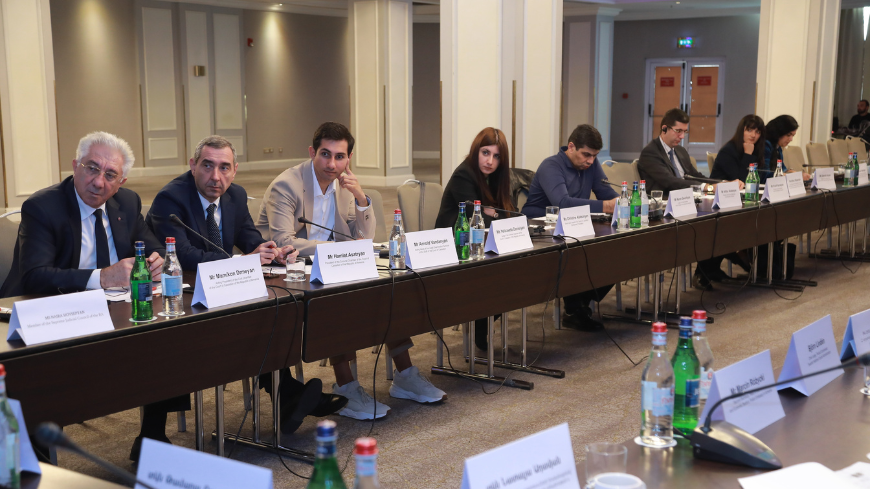To highlight the competence, tasks, organisation and composition as well as resources at the disposal of the Councils for the Judiciary the Consultative Council of European Judges (CCJE) adopted landmark Opinion No. 24 in 2021. The Opinion discusses the legitimacy and accountability of the Councils for the Judiciary, their relations with other actors including civil society, mass media, anti-corruption bodies, and other issues pertinent to their mandate and operation and provides a set of clear recommendations.
In view of this, on 27 October 2022 the members of the Supreme Judicial Council of the Republic of Armenia, presidents and judges of different court instances from Yerevan and regions of Armenia, and the Ministry of Justice representatives discussed the Opinion No. 24 (2021) of the Consultative Council of European Judges (CCJE) on the evolution of the Councils for the Judiciary and their role in independent and impartial judicial systems. The presentation on the Opinion was made by the President of the Consultative Council of European Judges Ms Anke Eilers.
The participants exchanged their views in relation to the Opinion, the presentation of which was focused on facilitating the discussion on the role of national institutions referred to as Councils for the Judiciary in guaranteeing the independence of individual judges and the judiciary at large and ensuring the efficiency and quality of justice in order to reinforce public confidence in the justice system, in the light of Council of Europe standards and best practices of its member states.
The round table discussion on the Opinion was organised by the Project "Support to the judicial reform – enhancing the independence and professionalism of the judiciary in Armenia". The Project is funded by the European Union and the Council of Europe and implemented by the Council of Europe within the framework of the Partnership for Good Governance (PGG II) programme.





